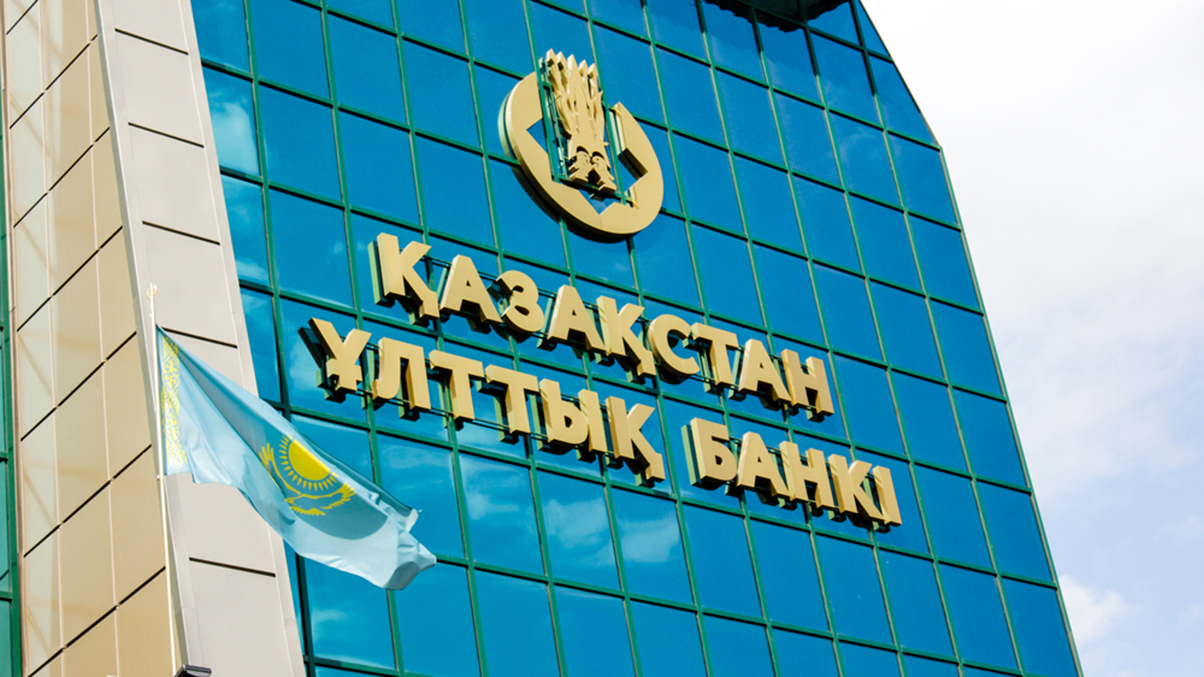Daniel Wilmot considers the challenges the oil and gas industry faces due to the Covid-19 crisis, and what businesses in the sector should do to manage risk and loss.
As the world settles into varying extents of social and economic lockdown, business focus is looking beyond the implementation of continuity planning. As Governments around the world are introducing measures to shore-up national economies, businesses are now turning their minds more towards the economic impacts and risks of the current situation. Many are casting an eye across the horizon and considering the steps that may need to be taken to avoid or mitigate loss.
Part of that exercise will require businesses to assess their contractual arrangements, obligations and exposure (whether financial or otherwise). They will need to identify and consider the availability of mechanisms in each contract or at law to alleviate or exclude liability and loss. Much has been written already about the need to explore the availability of force majeure, frustration or analogous exclusionary mechanisms to relieve a party of the consequences of a no-fault breach of its contractual obligations. This article seeks to revisit these legal concepts and their uses in the oil and gas industry.
The challenges faced by the oil and gas industry
Few, if any, industry sectors will be immune from the consequences of the Covid-19 crisis. The oil and gas industry is no different. It is, though, a sector that is perhaps more accustomed than most to the use of force majeure and similar clauses in the face of unforeseen events. That is not to say that the industry finds itself exempt from the effects of the crisis or confident in where the allocation of contractual risks may lie. Far from it. That the UK offshore sector was one of the first to call upon the UK government for financial support illustrates how precarious and critical an environment the industry finds itself in.
The drivers of risk and loss in the industry will be multifaceted, concurrent and inevitably complex to pinpoint or predict. At a macro level, the sector is living through exceptionally depressed oil and gas prices driven in tandem by the Covid-19 related drop in global demand and the recent geopolitical spat between Saudi Arabia and Russia about production cuts.
Domestic considerations are also playing their part. Variances in the extent of lockdowns and restrictions impact the availability of personnel (among other things). At the same time, pre-existing economic challenges are likely to linger on and have a greater bearing. Nigeria’s attempts, for example, to revitalise its oil and develop its gas sectors have faltered with delays to the passing of the long-awaited Petroleum Bill. This is impacting investor confidence in the region yet further after last year’s tax hikes. Fears of strategic divestitures by supermajors as production sharing contracts enter the final years of their terms will have been strengthened by the current crisis. Cuts in budgets and investment in response to the crisis will only bring these domestic issues to the fore.
Potential risks and losses
Businesses in the sector face numerous potential risks and losses. Price hedges, where they exist against falling oil prices, are likely to be short-term only. Revenue drops are inevitable, which in turn is forcing businesses to pre-emptively cut investment and costs. While the bond markets were quickly tapped by the supermajors, all the industry players are likely to consider pulling on the financial levers available, such as utilising cash stockpiles, suspending share buybacks, curbing capital expenditure and delaying project approvals. Challenging debt markets and the current state of equity markets will add to the difficulties. This is especially the case as government relief packages are unlikely to provide a panacea. The willingness of existing lenders to provide forbearance will prove a critical factor.
Steps taken to cut budgets and costs may bring about breaches of licensing obligations. Cash calls will not be met, joint ventures will come under strain and default rights will be threatened where oil prices have not already rendered projects uneconomic and brought them to a halt. Project stalls will impact those that service them such as construction and manufacturing companies, services providers and other contractors. These stalls will call into question contractual liabilities. Faced with liquidated damages and other sanctions, construction companies, in particular, will look to assert extensions of time and disputes will likely arise over whether it is the employer or contractor who bears the risk for crisis-related costs.
While take-or-pay arrangements may prosper with low prices, any upside could be offset by drops in demand. Long-term contracts for gas supply could see repricing formulae triggered, and global oversupply will place pressure on storage. Labour intensive parts of the value chain (such as platforms, ports, construction) face staffing restrictions from Covid-19 imposed lockdowns. Staff cuts could be the catalyst for health and safety breaches, and operators will need to navigate their contractual and legal duties of prudent operatorship carefully.
The lessons of the 2008 financial crisis teach us that the risk of fraud will increase as managers seek to deal with the competing demands of corporate stakeholders while implementing measures to try and keep struggling businesses afloat. For those that topple, distressed M&A will present opportunities in the near-term, although these will not be without their own risks and uncertainties. Regulators and authorities will be paying close attention to see if corners are being cut.
What should businesses assess to manage risk and loss?
The most prudent and best-organised businesses will have already started to identify and quantify future risks and devise and implement strategies in response. Lawyers will need to be heavily involved to support the business in reviewing its contracts, identifying legal risk (such as a likelihood that contractual obligations cannot be met) and providing opinions on the legal options available.
What should oil and gas businesses and legal teams be looking for?
1. Force majeure and other forms of contractual relief
Top of the wish list will be a force majeure clause. These clauses will have a central role to play during the crisis, and it is a rare contract in the oil and gas sector that does not have one. Still, their existence is only half the battle. Caution has rightly been advocated when considering the extent to which a force majeure clause could offer relief from liability.
The availability, scope and effects of a force majeure clause under English law depend almost entirely on its drafting. The difficulty in pinpointing the triggering event for a party falling into breach is likely to be a fertile source of dispute. Was the trigger Covid-19 or a by-product, for example, a fall in demand? Did the government lockdown measures prohibit personnel from working or were they merely advisory? Was the triggering event predictable and therefore excluded from the scope of the force majeure clause? As the crisis develops at a hasty pace, identifying the triggering event may prove challenging. Lawyers should be called in as soon as possible to help assess and pinpoint such events.
The steps taken by a party seeking the protection of a force majeure clause to mitigate its loss are likely also to be a point of contention. Arguments will also arise as to whether the non-performance was beyond the control of the breaching party. Critically, all formalities specified in the contract to trigger the force majeure relief will need to be carefully observed. Anecdotal evidence from our clients is that counterparties are already serving ‘pre-emptive’ notifications of a ‘possible’ force majeure event. These may not satisfy contractual formalities. Many fierce disputes have played out before the English courts and arbitral tribunals about whether a failure to comply with formalities excludes the availability of force majeure relief altogether.
While spotting the word “epidemic” in the terms of a force majeure clause may be cause for celebration (it can be found, for example, within certain AIPN standard form agreements, and no doubt other industry-standard forms), it is not the end of the analysis. The availability of force majeure under English law is sensitive to the facts of the case in question. No two cases are likely to be identical, so careful analysis is needed at the outset.
So-called MAC, or material adverse change, and hardship clauses will also be deployed by parties wishing to sidestep the consequences of their contractual obligations. Again, their availability and function will depend upon the terms in the contract in question.
Termination rights are also likely to require careful consideration. Typically, the consequence of successfully triggering a force majeure clause is the suspension of performance or the exclusion of liability for the breach in question. Parties looking to extract themselves from the bargain altogether may need to look elsewhere. Contractual termination rights will need to be carefully assessed. From the perspective of the non-breaching party, consideration should be given to whether a breach by the counterparty is repudiatory in nature under English law such that it generates common law rights to terminate and sue for damages.
2. Frustration
The somewhat uncomfortable bedfellow to the contractual forms of relief is the English law doctrine of frustration. Where contractual relief is unavailable, the doctrine is expected to become the final port of call for breaching parties looking to sidestep liabilities. As with force majeure, identifying the triggering event said to frustrate the contract will be key. That may not always be a simple task. Nor will it always be clear that the event in question is ‘sufficient’ (or of the nature) to constitute a frustrating event at law.
An often-held misconception is that a listed (and so foreseeable) event in a force majeure clause will exclude the availability of the frustration doctrine. While that is often the case, it is not always so. The English law of frustration is complex and highly fact-specific, seeking at its core to examine the allocation of risk (if any) between the parties for the triggering event. No two cases are likely to be the same and lawyers should be instructed to advise businesses seeking to benefit from the protections of the doctrine at the earliest opportunity.
Unlike a typical force majeure clause, an event of frustration both discharges the contract and, in so doing, cancels all current and future rights and obligations. Past performance is not automatically unwound. The counterparty may have claims against the frustrated party to recover sums paid under the contract or for any non-money benefits or unjust enrichment.
The doctrine offers another weapon in the armoury available to a breaching party wishing to explore the options it may have to avoid the consequences of falling into a no-fault breach.
3. Illegality
Although often considered part of any analysis into frustration, illegality should be considered as a doctrine separate from that of frustration under English law. The doctrine may discharge a contract if, for example, its performance becomes illegal in the place of the contract’s governing law. In the context of Covid-19, this doctrine may be engaged where the triggering event in question is a mandatory prohibition imposed by that place’s government or its authorities, such as a lockdown preventing all personnel from working.
However, as with all the analyses addressed above, caution and care must be exercised. In practice, it is likely that many ‘prohibitions’ allow an element of discretion. That discretion might be as narrow as a right to apply to an authority for dispensation. The nature and terms of the prohibition will need to be carefully assessed. Businesses would be well advised to involve their legal teams at the earliest opportunity to consider such matters.
Conclusion
Although the legal concepts of force majeure, frustration and illegality are well known, few parties will have seen these protections tested in litigation or arbitration. English law in these areas has developed in waves, each wave caused by a historic event of a serious and disruptive nature, such as Covid-19. As has been seen, the law’s application is highly sensitive to fact, and one must be slow to draw too many conclusive analogies from the case law (and events) that have come before. Indeed, viewed through the lens of a disputes lawyer, the 2008 crash offers much less guidance than might be initially thought.
Cases arising from the Spanish flu, swine flu and SARS epidemics offer a better benchmark for how the English courts are likely to examine Covid-19 issues. What is perhaps most certain is that English law will, as is a virtue of its common law, adapt itself to address the range of disputes that the crisis is certain to generate. While a laudable goal, it means that businesses will face a measure of uncertainty as the novel issues generated by Covid-19 are tested before English courts and arbitral tribunals.
So too will businesses (and their lawyers) face the task of identifying with precision the relevant triggering event(s). For the reasons touched on in this article, that will be far from simple. The short point is that no rule of thumb can be hastily adopted. Each contract will need to be assessed on its terms and against the relevant facts. Prudent businesses have long begun the exercise of working closely with their lawyers to consider contracts of concern, to identify available options and to strategise ways forward.
Covid-19 is impacting individuals and companies around the world in an unprecedented way. We have collected insights here to help you navigate the key legal issues you may be facing at this time.
You can find further information regarding our expertise, experience and team on our International Arbitration page.
If you require assistance from our team, please contact us or alternatively request a call back from one of our lawyers by submitting this form.
Subscribe – In order to receive our news straight to your inbox, subscribe here. Our newsletters are sent no more than once a month.







